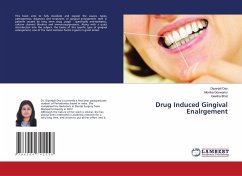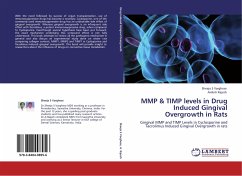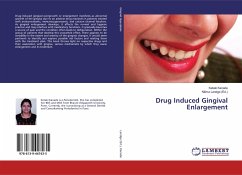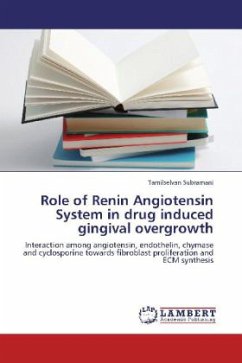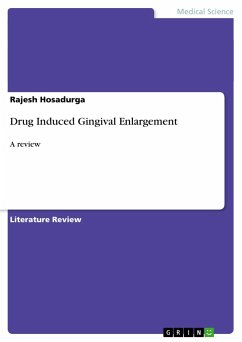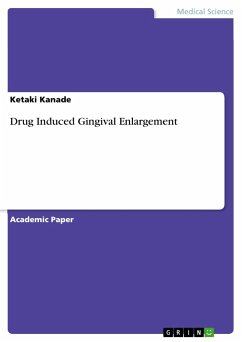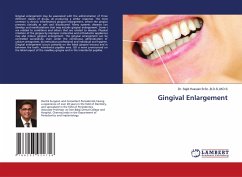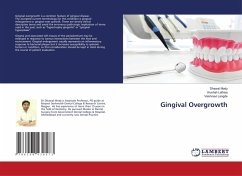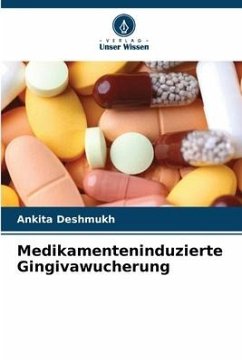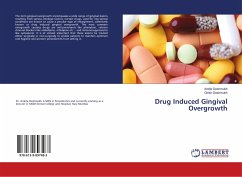
Drug Induced Gingival Overgrowth
Versandkostenfrei!
Versandfertig in 6-10 Tagen
27,99 €
inkl. MwSt.

PAYBACK Punkte
14 °P sammeln!
The term gingival overgrowth encompasses a wide range of gingival lesions resulting from various etiologic factors. Certain drugs, used for non-dental conditions are known to cause a peculiar type of enlargement, collectively known as drug induced gingival overgrowth. The most common overgrowth causing drugs are anticonvulsants like phenytoin, calcium channel blockers like amlodipine, nifedipine etc ,. and immunosuppressants like cyclosporin. It is of utmost important that these lesions be treated either surgically or non-surgically to enable patients to maintain optimum oral hygiene and preve...
The term gingival overgrowth encompasses a wide range of gingival lesions resulting from various etiologic factors. Certain drugs, used for non-dental conditions are known to cause a peculiar type of enlargement, collectively known as drug induced gingival overgrowth. The most common overgrowth causing drugs are anticonvulsants like phenytoin, calcium channel blockers like amlodipine, nifedipine etc ,. and immunosuppressants like cyclosporin. It is of utmost important that these lesions be treated either surgically or non-surgically to enable patients to maintain optimum oral hygiene and prevent periodontitis from setting in.



